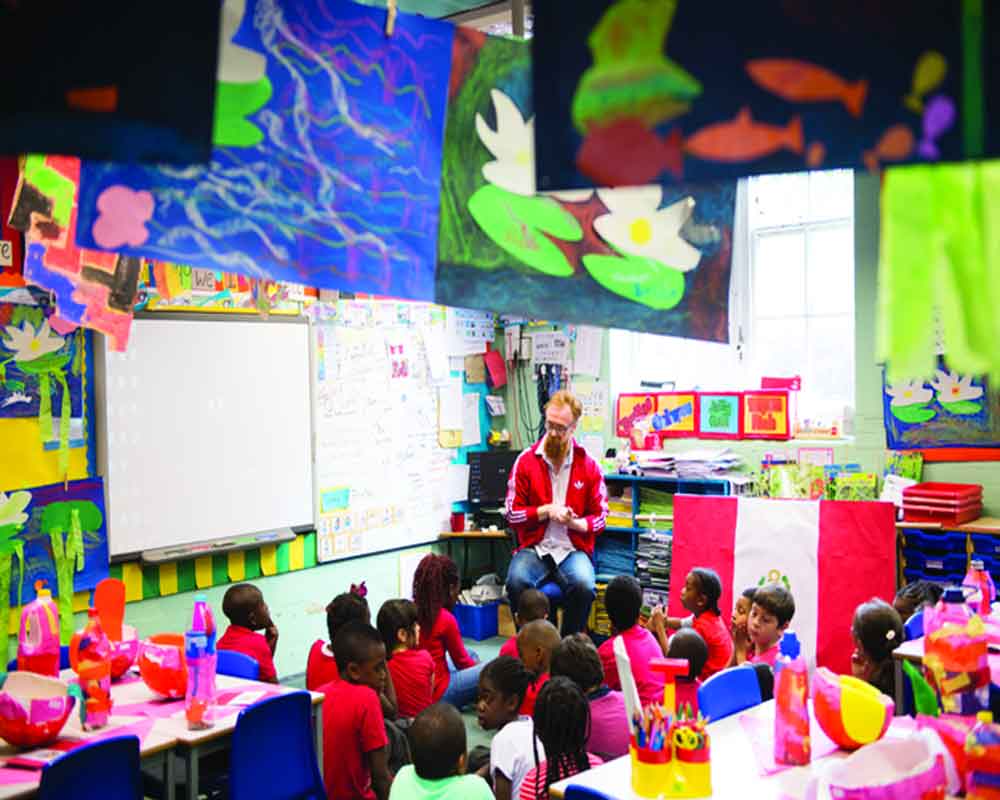Knowledge, behaviour and spirituality are pillars of personal development. Yet, crucial aspects of learning often lack sustained attention in educational systems
The entire Greek tradition, going through Aristotle, Socrates and more, has subscribed to the theory that ‘man is a learning animal.’ This belief has been carefully nurtured and left a deep impact on the Greek-Roman tradition. As the Greek-Roman tradition spread through North Africa, Asia and different parts of Europe, it left its mark on human thinking and learning. That ‘man is a learning animal’ graduated to the level of a belief and paradigm. Deep thought makes it necessary to take a closer look at this statement.
Palpably, this is a compact thought. There is some recognition and some empirical evidence to the effect that different phases of the life cycle have different intensities and content of learning. One learns comprehensively in youth and adulthood and as one grows and mellows, some of the earlier vestiges of the learning remain. What does not remain is a similar impact of that learning on behaviour or a continuance of learning in thought and deed. Thus, like all total statements, they need to be modified, adapted and fitted into the context.
What type of learning remains in sequence and continuance and why does, some of it it remain neither in sequence nor in continuance? Indeed, what kind of learning remains in patches needs to be realised with the content itself getting lost. This kind of exploration should be one of the central contexts of human growth. It is worth pondering why this kind of approach has not received the kind of attention, for learning, as other domains of scholasticism have earned.
At the end of it, knowledge, behaviour and spirituality are the three basic elements that go into a man’s personality. There is a general need to create awareness of these elements amongst the general literate community that matters in this land. That will be an essential element in India becoming a ‘Jagat Guru’ and leading the world through to a better future.
That may be a matter of emphasis at an operational level. To an extent that has not been sufficiently aligned with the skills that should arise out of educated knowledge and behaviour. Thus there is a need to take a yet deeper look at the foundations of Indian education and reflect it in processes of observed learning. It is also obvious that the human being has to be taught over and over again. As it happens, learning fades away and needs continuing renewal, to prevent it from slipping off. This needs intervention in many ways, including how the curriculum is designed, how it is imparted in any classroom and how it becomes a useful input to face the challenges of life and the profession.
Learning has many manifestations and begins with automotive behaviour, such as learning how to eat, how to use one’s fingers and how to maintain hygiene and other values. This has to be a lifelong process. However, as said earlier, there are certain aspects of life where repeated attempts at internalising learning have to be made. In certain areas of life, one cannot afford to make mistakes over and over again.
This situation must be addressed and collectively corrected in the life cycle of the individual. It is about time ‘learning’ as art was made an integral part of all disciplines. To understand this proposition clearly, one needs to recognise that learning mathematics requires certain unique methods and abilities. Those methods and abilities are not the same for learning English or Hindi as a language. There are other transformations and angularities in the requirements and characteristics of the learning process, itself. Illustratively the method of learning when it comes to learning history or geography, may require its uniqueness.
It is therefore plausible to argue that for each subject matter, there needs to be an orientation to the learning method of that subject. In other words, a teacher of mathematics needs to be very clear and explain to the students how to learn mathematics. The orientation of a teacher while teaching a language, as mentioned above, would be different and the teacher needs to explain to the students the learning methods of a language. The examples can be multiplied.
Understanding what is the core of a successful internalisation of skills, behaviours and information that comes out of learning a subject will make teaching far more effective. It will also give the approach of ‘man is a learning animal’ far greater reach. Like much else, learning theory needs to be made a part of the teaching plan. Somewhere it will mark the beginning of a more realistic a practical orientation. It would be useful to remind ourselves that all learning affects all of us and remains a part of the life of the land we live in.
(The writer is a well-known management consultant of international repute. The views expressed are personal)
























